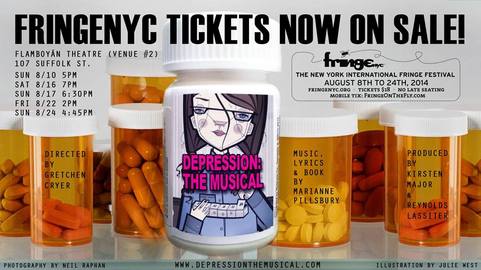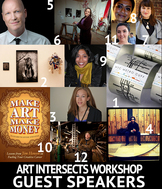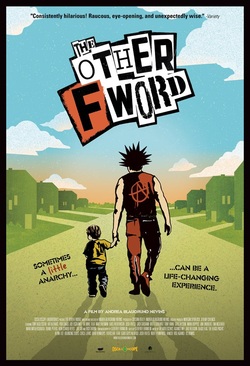I was lucky enough to attend the opening night which benefitted from the raw, heartfelt and emotional sincerity that comes with presenting your work in front of an audience for the first time.
What made this particularly special was that this was an autobiographical account of some of the protagonist's deeply personal experiences with depression. These experiences were communicated through a series of monologues, songs and “call and response” moments between the main character and the "committee in her head."
The musical touched upon some very poignant topics involved in the discussion of depression: common misconceptions about the term depression and how it is tossed around in every day life, the “two steps forward, one step back” process which is characteristic of the treatment for depression, the complexities of understanding the causes (Is there a genetic component? Is parental dismissiveness of our thoughts and feelings a factor? Is it the stressors associated with a fast-paced metropolitan city?)
Finally, in what seemed to be an “art imitates life” approach, the musical chronicled the protagonist's creative process as she went through fluctuating levels of motivation and commitment to the completion of the script and the music for her 1st theatrical musical performance.
“Depression: The Musical” made me think of the winding journey of creativity, especially when it is shaped by energy-sucking bouts of depression. What might begin as a deeply rooted need to manifest an inner conflict can become a meaningful drive to document (often at the validating presence of an audience) one's experiences. The pressure of completion, complicated by the distorting effect of a depressed outlook, can give rise to great ambivalence regarding one's ability to keep going and even the worthiness of the creative work itself.
What begins with and, hopefully, comes full circle to a cathartic experience is often interrupted by low motivation, hopelessness, insecurities and self-doubt. It is when the authenticity of the need for catharsis leads the way, that one can find and sustain their voice. In the case of Marianne Pillsbury, her voice found an outlet through well-written songs such as "Medicated" and "The Boo Hoo Blues." In the play, and hopefully in real life, Marianne achieved therapeutic healing and succeeded in sharing with the audience a very touching expression of creativity both in spite of and because of her experiences with depression.



 RSS Feed
RSS Feed
